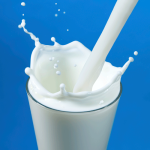 Consumption of raw milk has been implicated in the death of an Australian three-year-old, drawing the raw milk debate back into the public eye.
Consumption of raw milk has been implicated in the death of an Australian three-year-old, drawing the raw milk debate back into the public eye.
The unpasteurised milk was sold as ‘bath milk’ to circumvent laws around the sale of raw milk for consumption.
Read more in coverage from the New Zealand Herald or listen to local reaction on Radio New Zealand below.
The SMC collected the following expert reaction. Feel free to use these quotes in your reporting. If you would like to contact a New Zealand expert, please contact the SMC (04 499 5476; smc@sciencemediacentre.co.nz).
NEW: Prof John Brooks, FNZIFST, Microbiologist and Adjunct Professor at Auckland University of Technology, comments:
“The recent tragic death of a 3-year old infant and serious illness of four other children in Australia is yet another example of the risks associated with consumption of raw milk.
“Proponents of the consumption of raw milk claim that this is a natural food and has been consumed for hundreds if not thousands of years. That is true, but ignores the fact that many diseases can be transmitted from animals to humans in the milk.
“The hazards of consuming raw milk have been known for a long time. In Ontario around 1900, over 10% of all childhood tuberculosis was thought to be caused by unpasteurised milk. The rate of tuberculosis infection and many other milk-borne diseases in children fell dramatically after enactment of a law in 1938 requiring milk to be pasteurised; this was hailed as a major achievement.
“The fact is that between 1998 and 2005, a total of 45 outbreaks resulting in more than 1,000 illnesses, 104 hospitalisations and two deaths due to raw milk or soft raw milk cheese were reported to the US Centres for Disease Control and Prevention.
“There is some evidence that consumption of raw milk early in life can reduce the incidence of allergies. Bacteria in the raw milk may transiently colonise the intestine, resulting in stimulation of the immune system through infection.
“In addition, when milk is digested, a variety of beneficial ‘bioactive peptides’ are released. However, it should be noted that pasteurisation does not adversely affect the release of these peptides.”
Prof Brooks has previously written several blog articles on the hazards of raw milk consumption.
Dr David Everett, Associate Professor in Food Science, University of Otago and President, New Zealand Institute of Food Science and Technology, comments:
“The recent death of an Australian child from drinking raw milk that was not packaged for human consumption is both sad and disturbing, particularly so when there are people selling this product who are unaware of the risks.
“Recent evidence has shown that raw milk is not a sterile product when produced by the mother, but it is safe to directly feed the new-born. The problem arises when the product is packaged, transported to the point of sale, and stored, as the conditions during these steps are not always well-controlled and monitored. Spoilage and pathogenic bacteria can be introduced and grow in number during these stages. Primarily for this reason, raw milk should not be sold for human consumption. Pasteurisation is a simple heat treatment that has no significant impact upon nutritional value, thus the only reason for consuming raw milk is personal preference.
“The argument that we have safely consumed raw milk for millennia is a spurious one, as historically milk would have been consumed immediately after milking a cow. It should be noted that processing of raw milk into cheese produces a safe product due to the extra processing steps involved.”
Our colleagues at the Australian SMC collected the following expert commentary.
Lydia Buchtmann, Campaign Convenor and spokesperson for the Food Safety Information Council, Australia, comments:
“Nearly all dairy products in Australia, such as milk, cheese and yoghurt, are pasteurised. This means they have been heat-treated for a short period to kill any bacteria. Pasteurisation has done a great deal to reduce food-borne disease since it was introduced in Australia in the 1940s.
“It is illegal to sell unpasteurised cow’s milk in Australia for human consumption. There are also a few unpasteurised hard or semi-hard cheeses imported into Australia, including extra hard-type cheeses (parmesan types), the Swiss cheeses Emmental, Gruyere and Sbrinz, and Roquefort cheese, but these have to undergo strict production processes and testing. They must also be labelled that they have not been pasteurised.
“Vulnerable people such as pregnant women, people with reduced immune systems, the elderly or young children should not consume raw milk or raw milk cheeses as they can get seriously ill if they get food poisoning.”